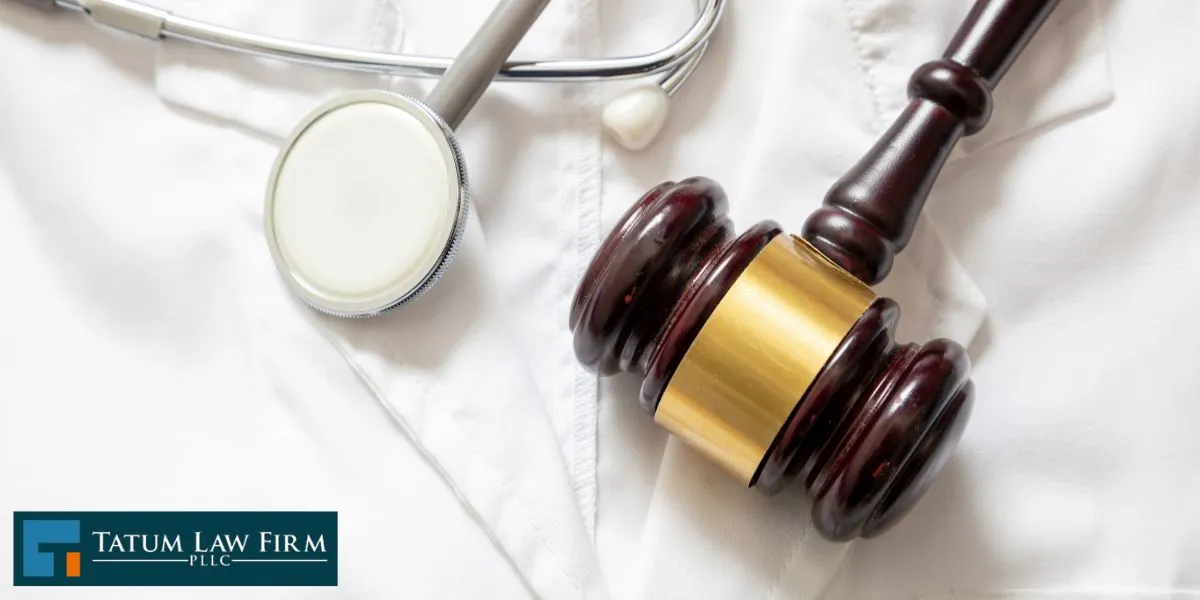Georgia Medical Malpractice Lawyer
Medical Malpractice Attorney in Georgia
Medical malpractice is usually an honest mistake. In most cases, tired and overworked medical personnel could make an error with no malice or ill intent. Mistakes, though, even when honest, still can cause harm.

In particular, in a field like medicine, which has almost no margin of error, the costs of mistakes can be significant. When that happens, the victims are often left with medical bills, lost income from missing work, and challenging emotional and psychological conditions as well.
The costs of medical malpractice are the responsibility of those who made the error. However, the medical malpractice insurance that they carry is the means by which the restitution is paid out.
As one can probably expect, these insurance companies try not to make it a habit to pay out anything more than the minimum they can get away with. Fortunately, the legal process of filing a claim against those who have committed medical malpractice offers an avenue for victims to get what they’re owed. At the Tatum Law Firm, our Georgia medical malpractice lawyers help our clients use the legal process to seek the compensation they deserve.
Who Can Commit Medical Malpractice in Georgia?
The act of a professional person or institution failing to live up to the standards of their profession is referred to as malpractice. When that profession is medicine and healthcare, the malpractice is medical malpractice. This means there are a number of different options regarding who could be liable in a medical malpractice claim in Georgia, including:
- Doctors: The ways in which a doctor might have committed malpractice are generally errors related to the diagnosis and treatment plan for a condition. For instance, misdiagnosis, not ordering proper tests, failing to correctly interpret tests, and ordering ineffective, harmful, or no treatment are all potential forms of medical malpractice that could fall back on doctors.
- Surgeons: Errors in surgery, performing surgery on the wrong body part or person, or leaving a foreign object in a patient are some of the things that could result in a surgeon being liable.
- Pharmacists: Pharmacists are generally responsible for what the pharmacies under their watch do. This means things like the wrong medications, incorrect dosing instructions, or failure to provide proper warnings are all things that pharmacists might be liable for.
- Nurses: Nurses generally are responsible for monitoring patients and for providing the treatment and medication in hospital settings that the doctors prescribe. Things like failing to monitor properly, mistakes with providing the right medications, or not following the right medication schedule could lead to nurses being liable.
- Medical Institutions: Though not as frequently as medical personnel, there are times when medical institutions could be held responsible. Examples might include when there is a policy issue that either caused or could have prevented a medical error.
- Medical Equipment Producers: Medical equipment producers may be held liable in cases where there is some sort of defect that leads to a patient being harmed.
How Do You Prove Medical Malpractice in Georgia?
The key to a successful medical malpractice claim is being able to prove negligence on the part of the defendant. Since medical malpractice is a variation of personal injury claim in Georgia, the process for proving this negligence is similar to the standard personal injury process, with some adjustments to account for the unique nature of medicine and healthcare.
There are generally three key components to proving negligence:
- Standard of Care: With a personal liability case, there is a need to prove a duty to care. In a professional setting, that duty is a given, and the issue becomes a matter of what that care should look like. This is why the first thing that needs to be demonstrated is what the standard of care would generally be in the situation the claim is concerned with. If the condition being addressed is more general, then the standard of care may be much more detailed, including what kinds of treatment would normally be expected. However, in more novel or rare cases, there is more flexibility around how a condition is treated, although things like professional administering of treatment would still be standard.
- Breach of Duty: The next thing that needs to be shown in a medical malpractice case is that there was a breach of duty, meaning that the standard of care was not met. The plaintiff’s lawyer must be able to show the care that was given and make clear to the court how that care fell short of what should have been done. Because medicine is such a complex subject and field, this can often mean bringing in a peer of the defendant who can inform the court of how the care fell short of the standard.
- Cause of Injury: Finally, it must be shown that the failure to provide the standard of care that should have been given was the reason the plaintiff suffered an injury. Without there being an injury, there is no malpractice. For instance, if there was a situation where a nurse gave the patient a slight variation in the medication schedule that was prescribed but it didn’t affect the patient, then there is no malpractice that occurred. The injury, though, could take a few different forms. It could be a new injury, which is generally easier to prove. More difficult to prove, but also possible, is when the injury is either a prolonging or worsening of the original condition.
What Can Be Compensated in a Georgia Medical Malpractice Case?
Compensation in a civil case is referred to as damages. To receive damages, your Georgia medical malpractice lawyer must be able to connect the costs that you are seeking compensation for to the injury that occurred as a result of the breach of duty.
In other words, the damages must compensate for the costs that the injury created. In most medical malpractice claims in Georgia, the damages are divided into two groups: economic and non-economic.
Many of the costs associated with medical malpractice have some sort of financial accounting associated with them. This means they are generally easy to calculate. Those easily calculable financial costs are paid out with economic damages. All the medical bills, lost wages from missing work, future medical bills, and lost earning capacity are paid through economic damages.
The financial costs, though, are only a part of the costs associated with medical malpractice. Things like pain and suffering, emotional distress, and loss of enjoyment in life are examples of the kinds of psychological and emotional costs that can come from medical malpractice. Of course, these issues aren’t the kinds of things that can be solved by money, but the financial award can ease stress and burdens in the other parts of a person’s life, hopefully creating space for them to manage these particular issues.
There may also be some cases where punitive damages are awarded, but this is limited to situations where the defendant’s actions or inaction were seen as egregious or malicious.
Are There Any Limits to Medical Malpractice Damages in Georgia?
Non-economic damages used to be capped and could significantly limit the amount of money that could be awarded in a medical malpractice claim. However, this cap was found to be unconstitutional, and it no longer applies.
The other thing that could reduce the damages you’re able to take home is Georgia’s contributory negligence rules. These give the defendant in a claim the chance to argue that the plaintiff was also to blame for their condition.
If the court finds that the plaintiff is at least half at fault for the situation, they cannot collect any damages. If it is less than half, then the damages awarded will be reduced proportionately to the share of damage that they are determined to have. If a plaintiff is shown to be 40% to blame and the full damage award was going to be $500,000, then they can only collect $300,000.
Contact Our Skilled Georgia Medical Malpractice Lawyers
For victims of medical malpractice, it can feel like a betrayal of trust. They visit a doctor, have surgery, or make use of a medical institution with the belief that it will help make them better. For most people, the worst possible outcome is that the efforts of the medical system would be neutral, leaving their condition to continue along its normal progression. Unfortunately, though, there are times when the worst-case outcome is that a patient is actually made worse off by their encounter with the medical care system.
When a patient ends up being harmed by medical personnel, facilities, or equipment, they have a legal right to seek restitution for the harm they’ve suffered. They are supposed to be compensated through the insurance policies that cover medical malpractice.
Unfortunately, though, the expenses of medical malpractice and their desire to not hurt their bottom line means these companies typically will try hard to avoid paying what they should.
That’s why we at the Tatum Law Firm are prepared to fight hard for our clients and seek everything that they’re owed. If you are ready to receive what you deserve as the victim of medical malpractice, get in touch with us today.






